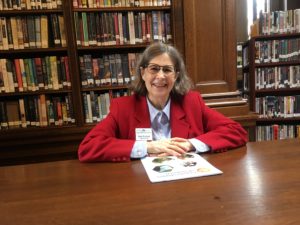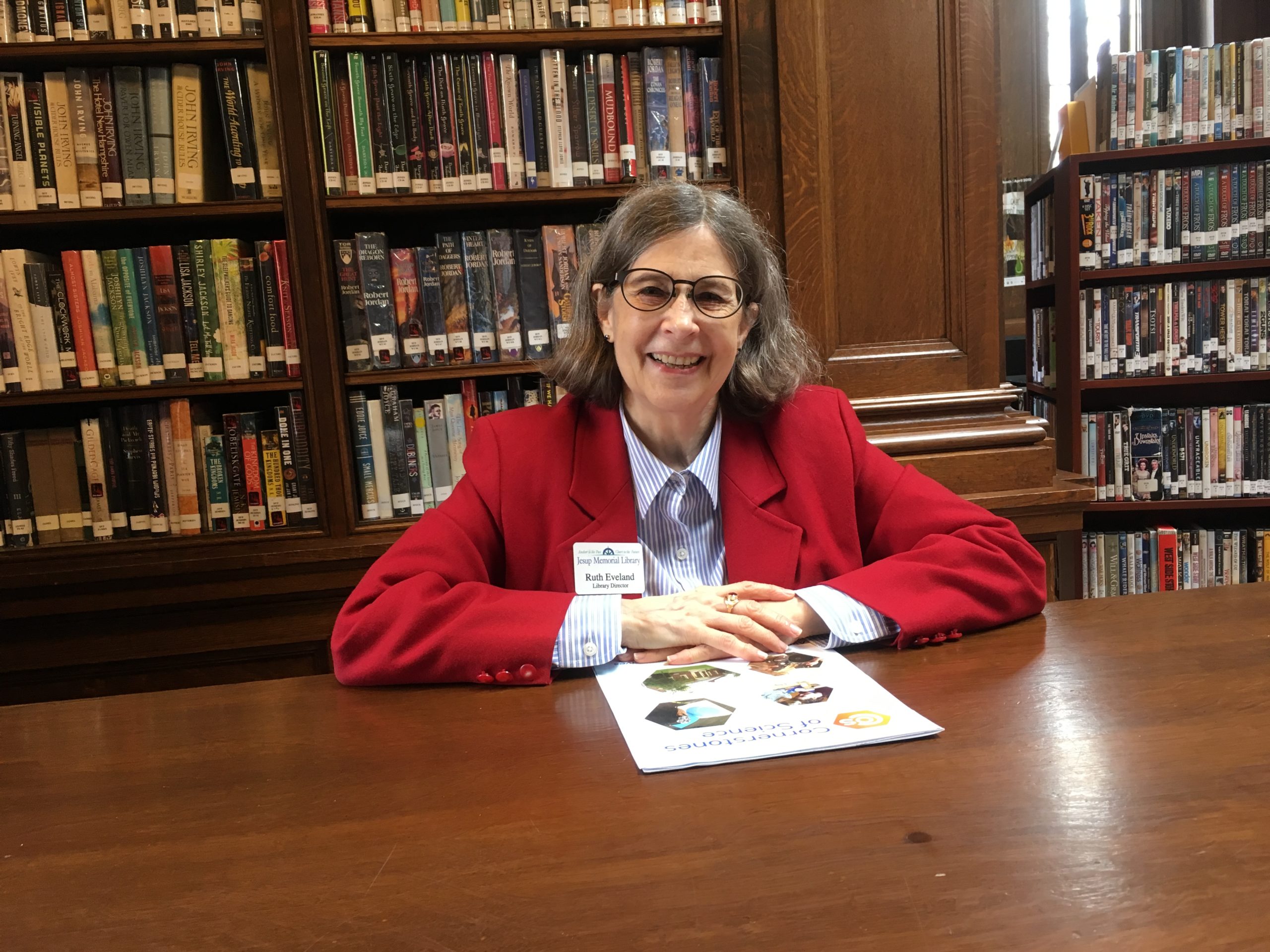
Ruth Eveland, Library Director
The Jesup Memorial Library – situated in a historic brick building in Bar Harbor, Maine – may have the look of a traditional library, but the feel is altogether different. When one walks in the door it’s immediately clear that there’s a vibrant, social vibe to the place. Jesup is not your typical community library – in fact, the place is transitioning from a passive provider of books to a dynamic hub focused on enabling community members to discover, learn, and collaborate around science. Part of this exciting transformation is due to a partnership with Cornerstones of Science.
“Great libraries are catalysts in their communities,” says library director Ruth Eveland who is at the forefront of the shifting mindset at Jesup, “with the help of a collaboration between Cornerstones and our state library, we’ve been able to connect people to some of our town’s most powerful resources.”
For a small town of only 5,435 year-round residents (and many more in the summer) Bar Harbor is home to some prominent centers for science, technology, and learning. Two major biological research laboratories (The Jackson Laboratory and MDI Biological Laboratory), a hospital, a college (College of the Atlantic), and wildly popular Acadia National Park all reside within the town.
“There’s a whole lot of science happening at all of those places,” says Eveland, but until Cornerstones came along, the library had not figured out how to take advantage of opportunities for partnership and cross-pollination with these powerful neighbors.
“The relationship with Cornerstones gave us a strategic approach to tackle how to bring quality science information to our community and get people engaged and interested in what was already happening here,” says Ruth.
Cornerstones and the state library challenged Eveland and her team to think outside the box. Because of the library’s proximity to the College of the Atlantic and Acadia National Park, Eveland knew that citizen science focused on plants, animals, marine science, and biology was already happening.
“What I needed to do was to think strategically about what wasn’t being covered by some of these organizations.” Eveland knew she wanted to focus on adult programming, so she eventually landed on three distinct areas of focus:
- Genetics – Could the library find a way to help people understand the extraordinary research being done at The Jackson Laboratory and MDI Biological Laboratory? Eveland knew there was a ton of curiosity and interest, but many residents were intimidated by the prospect of visiting a research campus. The result has been an extensive series of programs for adults that cover everything from how to know you’re getting good science information, to conducting DNA testing on dogs in the community “doggie DNA,” to extracting DNA from a strawberry. The Jackson Lab collaboration is entering its fourth year.
- Astronomy – Could the library, which had already been partnered with an enormously successful Acadia Night Sky Festival, seize the opportunity to further collaborate and become a partner site for the multi-day festival? The result has been a slew of Sunday programming, including an inflatable planetarium and a series of Sunday afternoon presenters. This program also makes use of a Cornerstones of Science Orion Telescope, which resides in the Jesup Library.
- Hands-On “Maker” Technology – This idea relates to anything to do with hands-on “maker” technology. This program, which is still in development, has resulted in a program that engages local artist “makers” who are keen on having a local place to collaborate and work.
A Few Words of Wisdom
Eveland says developing these programs has taken time and effort, but the results have been profound and use of the library has increased dramatically. She cautions libraries not to take a cookie cutter approach to integrating STEM into their library curriculum. “Jesup is a reflection of our community,” says Eveland. “Other libraries must work with what they have as resources and with the needs and strengths of their own communities.”
The opportunity to work with Cornerstones was a game changer. “I was just so excited by this possibility because I had been trying to figure out a way to get more science programing here in the library.” Yet Jesup didn’t have the expertise in house to make it happen.
“There are rare occasions where a library will have someone who can do it all,” says Ruth. But every library has the opportunity to expand its programming in conjunction with the people in their community. “It requires having conversations with people, spurring their interest, and developing partnerships to help it move forward,” she said.
Bottom Line: Jesup Memorial Library’s partnership with Cornerstones and the state library helped activate a handful of extraordinary collaborations in a town of only 5,000 year-round residents. And now, the library is a fuller, more vibrant, and more accurate reflection of its community.


